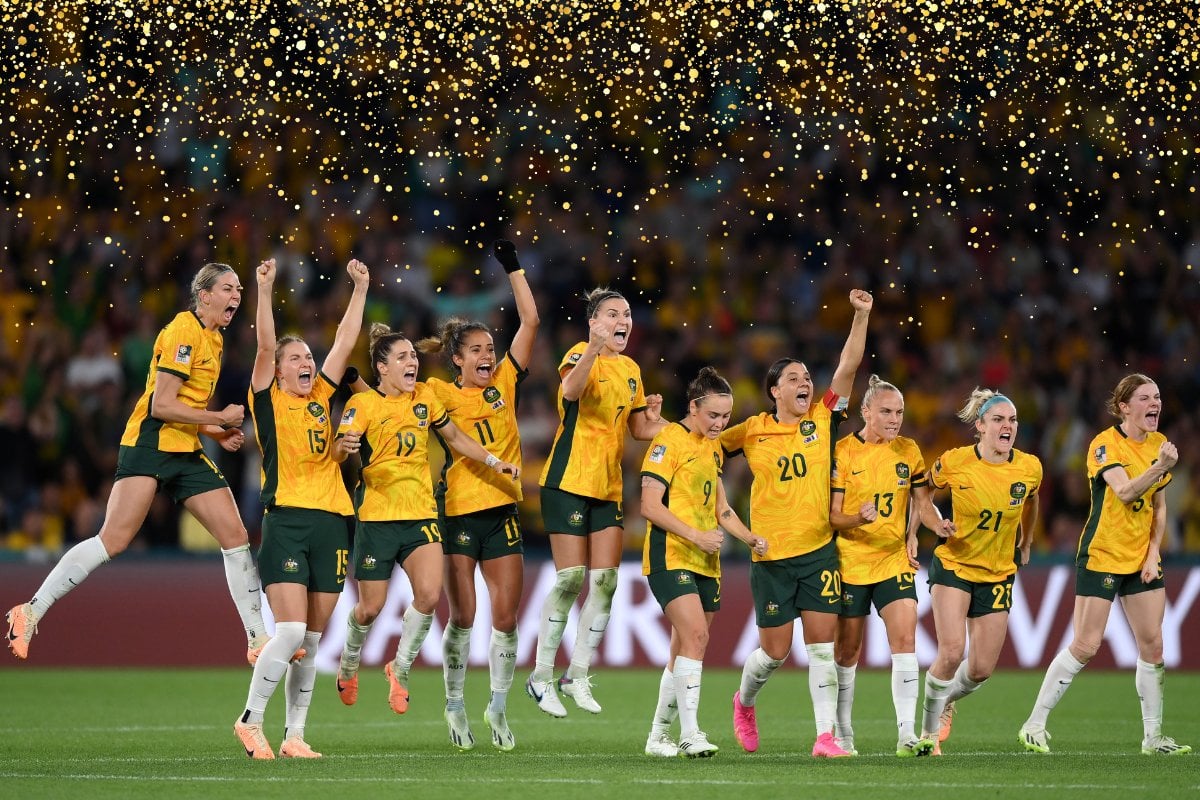
To catch up on all things Matildas and the 2023 Women's World Cup, check out our hub page here.
The Matildas' victory over France at the World Cup has become Australia's biggest sporting event in the past two decades.
Saturday night’s quarterfinal had an average audience of 4.17 million, making it Australia's most-watched sports event since Cathy Freeman won at the 2000 Sydney Olympic Games.
The ratings peaked at 7.2 million during the penalty shootout, which means that more than 25 per cent of Australia's population tuned in to cheer for the gals.
The Matildas have defied the odds and secured what no other Australian soccer team – of any gender — ever has before: a spot in the FIFA World Cup semi-final.
Basically, the Matildas are sporting gods right now – but it wasn't always this way.
The origin of the Matildas' name.
The Matildas came from humble beginnings in October 1979, as 11 Australian women hit the football pitch in the Sydney suburb of Miranda. They continued to play throughout the 1980s but the sport didn't hit its stride until the inaugural FIFA Women's World Cup in 1991 – although Australia did not qualify.
During these foundational years, the women's team was still considered somehow 'less than' the Socceroos men's team, with their games receiving no media coverage and significantly smaller crowds.
In fact, for years, the team's nickname was simply the 'female Socceroos'. They were only given a proper name in 1995 after the team qualified for their first World Cup.
